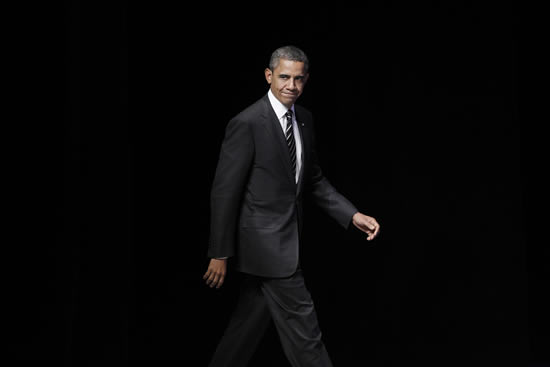Well, we can’t say he didn’t warn us. After the November 2010 elections when the President’s party lost control of the U.S. House, Barack Obama told America that where he can’t legislate, he will regulate. In the last year, he lived up to that pledge, and now he’s promising to do even more of it in 2012.
With 2011 coming to a close and the President about to embark on an election year, he is unabashedly showing his cards and telling America that he’s going to enact his agenda, whether the legislative branch is with him or not. Real Clear Politics captured the President’s words from an interview with KOAA-TV in Colorado Springs, Colorado. Reporter Rob Quirk asked what we can expect from the President over the next year. Obama’s response:
Well, what we’re going to have to do is continue to make progress on the economy over the next several months. And where Congress is not willing to act, we’re going to go ahead and do it ourselves. But it would be nice if we could get a little bit of help from Capitol Hill.
Make no mistake, those words weren’t a slip of the tongue. It’s the same line the President uttered in his 60 Minutes interview with Steve Kroft that aired Sunday. Here’s the relevant excerpt:
Kroft: Do you have any hope that anything is gonna get accomplished between now and the next election?
Obama: If I have anything to do about it, absolutely. We’re gonna keep on pushing to get things done. I want to work with Congress. I want to work with both parties in Congress. I think that we can still make progress on a balanced approach to deficit reduction. What I’m not gonna do is wait for Congress. So wherever we have an opportunity and I have the executive authority to go ahead and get some things done, we’re just gonna go ahead and do ’em.
As Heritage has detailed here and here, whether it is in the area of environmental regulations, labor and immigration law, No Child Left Behind, the auto bailout, the selective enforcement of other federal laws, and the regulation of the Internet (among others), the Obama Administration has in fact enacted its agenda via legislative fiat. So what’s the problem? A big thing called the U.S. Constitution and the separation of powers. The Honorable Douglas Ginsburg explains:
Articles I, II, and III of the Constitution respectively vest the legislative, executive, and judicial powers each in a separate department of the federal government. This separation of powers, which draws upon ideas advanced by John Locke, Baron de Montesquieu, and Sir William Blackstone, reflects the Framers’ intention that undue power not be combined in any one department lest, being unchecked, it become tyrannical.
The separation, by which each department may exercise only its own constitutional powers, is fundamental to the idea of a limited government accountable to the people. The principle is particularly noteworthy in regard to the Congress. The Constitution declares that the Congress may exercise only those legislative powers “herein granted.” That the power assigned to each branch must remain with that branch, and may be expressed only by that branch, is central to the theory.
In short, it’s Congress’ job to legislate, not the President’s, whether Barack Obama likes it or not.
Read more about the separation of powers in Legislative Powers: Not Yours to Give Away at Heritage.org.



























